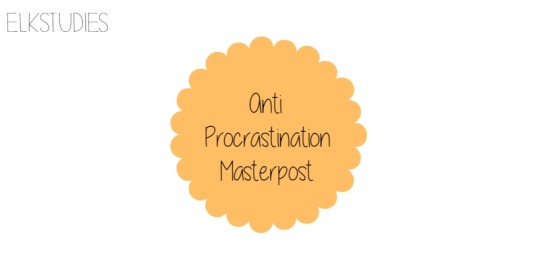alevels '18 / singapore / physics, math, history, econs / 17
Don't wanna be here? Send us removal request.
Text
ok universe, i’m ready to feel good things. make me feel good things.
2M notes
·
View notes
Text
I think next thursday is gonna be the best day of my entire life tbh
953K notes
·
View notes
Text
ok universe, i’m ready to feel good things. make me feel good things.
2M notes
·
View notes
Text
me: i love books so much, reading is my life
also me: *hasn’t finished a book in 4 months*
19K notes
·
View notes
Text
when you succeed at something you usually suck at

232K notes
·
View notes
Text


feb 14/2019
happy valentine’s day, everyone! whether you celebrate today or not, i hereby send you some extra love just in case - on a side note, i am in love with how the light falls in my room atm it’s just so gorgeous ✨
11K notes
·
View notes
Text
ok universe, i’m ready to feel good things. make me feel good things.
2M notes
·
View notes
Text
alevel advice anyone?
alevels are in about 100 days and i am freaking out because i am rly unprepared and i rly don’t know so many things AAAAAAAAAAAAAAAHHH
if anyone who has gone through the alevels has any advice pls hmu
2 notes
·
View notes
Text
You don't know why you're studying anymore?
You’re studying because you want to get a good grade, you’re studying because you want to show that you’re capable, you’re studying because you want to go to your favorite university, you’re studying because you want to be a doctor, a judge, an engineer, an artist, whatever you dream of. You’re studying because you wanna do what you love. You’re studying what you hate because you want to do amazing things one day. You’re studying because you have a goal. You’re conflicted because you care. You’re procrastinating because you think you won’t be good enough, so why even try? But let me tell you, if you keep lying down and just thinking about your ambitions, they will never come true. You gotta work for it. It won’t be easy, but it will be worth it. I promise you it will be worth it. And don’t think, not even for a second, that you can’t do it. Don’t make excuses. You CAN and WILL do it. You’re studying because it will help you do it.
16K notes
·
View notes
Text
you have been visited by the seven magic dragon balls your biggest wish will be granted but only if you reblog

1M notes
·
View notes
Text
“She sips her coffee, sets it down, stretches her arms. This is one of the most singular experiences, waking on what feels like a good day, preparing to work but not yet actually embarked. At this moment there are infinite possibilities, whole hours ahead.”
— Michael Cunningham, The Hours
11K notes
·
View notes
Text
how to stick your plans
by a horrible procrastinator
scheduling:
keep things realistic. you may think you can read 200 pages of jane eyre in one night, and honestly, you could…but you won’t unless that essay that’s 30% of your grade is due, you know, tomorrow.
you know your habits better than anyone. try to work around what you know you’re going to do. can you read about 25 pages without getting totally bored/sidetracked? well, make yourself do that. it’s only 25 pages, right?
try to accomplish one thing every day. don’t ever let your day slip away from you without doing anything. even if that “one accomplishment” is making a stupid text post on tumblr or revising your notes or washing your sheets…just be productive!
this is especially important for those of you with mental illness! having a “zero day” can really plummet your mood or set you in an unproductive rut.
if you really feel like you need a day to just chill out, napping can count as your accomplishment
don’t push studying off! you’ve probably heard this one a million times, but seriously. don’t. you’re not going to retain 10 weeks worth of information with one study session…okay, maybe you can, but do you really want to?
the best, low-effort way of remembering information is to, at first, review it often. right after you learn the material, review it a couple times during the week. maybe re-write your notes that weekend. then, the next week, visit one or two times, just glazing over parts you don’t really remember well. then, maybe once every two weeks, etc…by the time you get to finals, you’ll be familiar with all the information! trust me, it works.
organize your to-do’s. personally, i make a huge to-do list for the entire week. then, i delegate different ‘levels’ of urgency to it (see below.) you can do this however you want, but i do it this way to help me visualize how lazy i can be and not pay for it…
i tend to organize it by these ‘categories’ / ‘urgent levels’
is there a quiz on the material due soon
how likely is there to be a pop quiz
what’s my grade in the class like / how badly do i need that ‘a’
does the homework/assignment need to be turned in
etc
actually doing it:
studyspo helps. okay, i know this is kind of obvious considering i’m a studyblr, but… you see that notebook you just bought? isn’t it fucking adorable? don’t you want to make some sweet, sweet note-love to it? you know you do.
don’t spend too much time setting up your work space or browsing tumblr. seriously. you know when you’re overstepping.
have some nice playlists. preferably with music you already know! if you don’t know the song already, chances are it’s just going to become a distraction.
8tracks is a great site for this! you can make your own mixes or take a listen to one of the many, many study / chill playlists available. again, take a listen to the track on your way to class or whatever before actually trying to study with it on.
instrumentals + classical + video game music are the standard
get organized. messy = stressy. seriously. organize your desk, organize your notes. even if it’s not really your style, at least try to keep things ‘in your personal order.’ try to pretend you have your shit together. you will be so much more productive & confident if you feel in control of your situation.
if you’re a perfectionist, you may want to disregard this. really. you don’t want to put ‘tidiness’ above productivity.
taking pictures of your awesome, super-nice work space is awesome motivation. give that illusion of productivity. become tumblr famous.
if you can afford it, matching stationary and cute shit like that is super awesome feeling. it makes studying aesthetically satisfying.
take care of yourself. brush your teeth, put on that nice-smelling lotion, drink water. eating healthy foods, getting some exercise, all that good shit people tell you to do…it really is important. it’s kind of hard to focus or remain motivated if you’re miserably bloated & haven’t showered in 3 days.
especially for my neurod or mentally ill followers!
i fucked up:
repeat after me: IT’S OKAY. IT’S OKAY. we all fuck up. you’re allowed to fuck up. sometimes assignments don’t get done, sometimes we don’t do as well on tests as we’d like. it’s okay. you’re okay.
recovery. alright, so, now that we’ve accepted that we’re human beans who sometimes grow upside-down…
cuddle in a blanket, and write down what you think you did wrong. did you not study enough? do you need to go to your professors office hours? write down your ideas.
let your failure motivate you! you hit your lowest point, alright? now you can focus on doing better, even if it’s just a few points difference.
you can do some things wrong. you don’t need to get an A every single time. did you understand 50% of the material? well, that’s halfway there!
you’re not going to be perfect at everything. we all have growing pains.
well, that’s all i have to say. keep growing towards the sun, kids.
20K notes
·
View notes
Photo

Tools
1 -iTunes 2-Play Store
30/30 // 1 // 2 // (time tracker/ to-do list)
Anti-Social [mac & windows] (website blocker)
Any.Do // 1 // 2 // (to-do list)
Coffitivity // 1 // 2 // (coffe shop background noise)
Focus [for mac] (website blocker)
FocusNow // 1 // 2 // (rewards you for not looking at your phone)
Get Shit Done // 2 // (timer)
MyHomework Student Planner // 1 // 2 // (planner)
Pomodoro // 1 // 2 // (time tracker)
Self Control (website blocker)
StayFocused [chrome extension] (website blocker)
Wonderlist // 1 // 2 // (to-do list)
Tips
2 Minute Rule
11 Ways
Apps for a Focused Mind
Get Motivated
How To Stop
How To Stop (Youtube)
How We Procrastinate
Overcoming Pocrastination
Stop and Stay Focused
Staying Focused Through the Coming Year
Stop Procrastination
Stop Procrastination in 3 minutes
Tips for Staying Focused
Train your Brain to Stay Focused
When you get Bored
7K notes
·
View notes
Text
Tips for Studying Effectively
The most common barrier to success encountered by college students is a lack of effective techniques for study and exam preparation. If you are one of the vast majority of students whose answer to the question, “How do you study for your tests?” is, “I go over my notes,” then you need to take a serious look at your study skills. Here are some suggestions to increase your effectiveness as a student.
I. Day to Day A. Take good notes. Very few students leave high school with this skill. College of DuPage’s Learning Lab can help you here. Some suggestions and observations. 1. Always take the notes for a particular class in the same notebook. Spiral bound notebooks were invented because they solved the problem of keeping related information consolidated in one place. Take advantage of this. 2. Date each entry into your notebook. 3. It is usually best to keep the notes for different classes separate from each other. Spiral notebooks with built in dividers are excellent for this purpose. 4. Your notes should contain as complete a record of what the instructor said as possible. Of course, you should not try to write every word spoken, but don’t leave out ideas. When you study, your notes should call back to your mind the entire sequence of ideas presented. Take care to spell all new words carefully. It you don’t know how to spell a word, ask your instructor to write it on the board. Most will automatically do so for new or difficult terms. 5. Anything the instructor writes on the board should appear in your notes. If the instructor took the time to write it out, he or she considers it important. You should do the same. 6. If possible, try to take your notes in some kind of outline form. The organization of ideas is as important as the content of those ideas, especially when it comes to learning the material for an exam. 7. You might find it useful to have a second color of pen or pencil available for highlighting important ideas or indicating vocabulary. B. Be involved in your classes. Don’t simply pretend you are a sponge, ready to soak up whatever the instructor says. You are there to learn, not to be taught. 1. If the instructor is moving too rapidly for you, or if you don’t understand what is being said, say something! 2. Ask questions if you are confused. Confusion is definitely your worst enemy. 3. If your class includes group activities, participate as fully as you can. Such exercises are done for your benefit, not to provide a break for the instructor. C. Review your notes every day. This suggestion is one which we have all heard a thousand times. Unfortunately, most of us never really believe it until we actually try it. Spend 30 minutes or so each evening going over the notes from each class. There are at least two tremendous benefits to be gained from this discipline. 1. Research has shown that reviewing new material within 24 hours of hearing it increases your retention of that material by about 60%. This means that you will be 60% ahead of the game the next time you walk into class. If you want to significantly reduce the time necessary to prepare for exams, this is the way to do it. 2. Reviewing material before the next class period enables you to identify points of confusion or omission in your notes, which prepares you to ask the questions you need to ask before the next lecture. Again, confusion is your worst enemy. D. It is excellent policy to give high priority to new vocabulary. Language is the most fundamental tool of any subject, and it can seriously handicap you to fall behind in this. E. Keep up on your reading. Unlike most high school teachers, many college instructors don’t give specific reading assignments. You are expected to go to your text for the reading related to the materials covered in class. Be independent enough to do this without being told.
II. Using Your Textbook A. Don’t expect your instructor to give you detailed, page by page textbook assignments. While some may do so, many do not. College teachers are much more likely to expect you to use your own initiative in making use of the text. B. In most cases, it will be most useful for you to at least skim the relevant chapters before each lecture. You should receive a course outline/syllabus at the beginning of the quarter, which will tell you the subject for each day. You may receive chapter references (or even page references), or you instructor may expect you to be perceptive enough to refer to the Table of Contents. 1. When you first approach a chapter, page through it fairly quickly, noting boldface headings and subheadings, examining figures, illustrations, charts, etc., and thinking about any highlighted vocabulary terms and concepts. Also take note of the pedagogical aids at the end of the chapter–study questions, summary, etc. 2. When you have finished surveying the chapter, return to the beginning and read in more detail. Remember to concentrate upon understanding. Don’t simply read through the words. Any words which you don’t understand you should look up. If you own the book and intend to keep it, you may want to write definitions of such words in the margins. You may also find it helpful to make observations and other useful notes in the margins. If you don’t intend to keep the book yourself, you should carry out similar activities on a page in your class notebook. 3. On this first trip through the chapter, you should concentrate upon catching the major subjects and points of the material. Also take note of those things which you don’t understand. If the lecture on the material doesn’t clarify those points, you should ask your instructor to explain. C. Following coverage of the chapter’s material in class, you should go back to the book and read it again. It will probably be helpful to skim through it first, as you did when you first looked at it. The tables and figures should be more readily read in detail. If you are a truly conscientious student, you will outline the chapter and prepare a vocabulary list of the terms which are pertinent. D. At this time you should think seriously about the review and study questions at the end of the chapter. Do your best to answer all fo them as if they were a take-home exam. E. You may also want to develop a system of cross referencing symbols to use when comparing your class notes to your notes from the text. F. Remember that your instructor will probably not use the same words which you find in the text book. nothing is more frustrating than to discover that what you hear in class is no more than a rehash of what you read in the book. However, if your instructor knows his/her subject, and the author of your text knows his/her subject, the meat of what they say should be the same. NOTE: Nobody is infallible. Your instructor may make mistakes. Don’t expect him or her to be more than human.
III. Preparing Assignments A. Here’s another thing we have all been told thousands of times: Don’t leave assignments until the day before they are due! If you have a paper to write or a lab report to prepare, begin it as soon as possible. In most cases, instructors will be delighted to receive work early. Remember that many papers or projects require quite a bit of research before you can even begin writing. In most cases, it is impossible to accomplish the necessary preparation in one day or even one week. In some cases, instructors won’t accept late work at all. They are perfectly justified. B. Another sore point: Be aware of the appearance of the work you submit. You should want to be proud of every assignment you submit, and that includes being proud of its appearance. If possible, assignments should always be typed. Never turn in an assignment written in pencil. Pages torn out of notebooks are sloppy and unsightly. Think about this point every time you hand an instructor an assignment. That paper represents the quality of your work, and your instructor is perfectly justified in taking its appearance into consideration when assigning a grade. C. An increasing number of instructors are requiring that all outside work be typed. If you don’t type, you should consider learning how. If you don’t want to do this, you should begin investigating ways and means of getting someone else to type your papers. This will often mean paying a professional typist. Costs vary, but be prepared to pay a considerable amount. A really good typist may be able to turn out 6-10 pages an hour. Think about what you consider an appropriate hourly wage when you consider how much you should expect to pay a typist. Another point you must consider is that it will add to the time necessary to prepare a paper it you have to go to someone else to type it. In planning the time necessary for typing, consider the following points: 1. Your typist may have other customers who are just as anxious as you are. 2. A paper takes time to type. 3. Even the best typist makes mistakes. your paper must be carefully proofread by you. 4. After proofreading, the typist must have time to make the necessary corrections.
IV. Preparing for Exams A. Keep in mind that you want to be an active learner, not a passive one. The more you use and manipulate the information, the better you will understand it. Using and manipulating information in as many ways as possible also maximizes your ability to access your memory. B. Do not wait until the night before an exam to study! Of course, you should be regularly reviewing your notes, but the preparation still takes time. C. If your instructor hasn’t explained to you how he or she designs exams, ask. this is a perfectly legitimate concern. However, keep in mind that an instructor has the right to design exams in whatever fashion he or she sees fit, and in most cases you have no business asking for changes in that design. You need to learn to handle all testing styles–including the dreaded essay exam! D. A good first step in preparation is to read through your notes a couple of times. While you are doing this, you might also 1. Highlight major topics and subtopics, with the goal of generating an outline of your notes. Even if you take your notes in outline form, this is a good practice. Major topics often extend through more than one day’s lecture, and it is easy to lose track of the overall picture from day to day. 2. With a second color, highlight all vocabulary terms. E. Outline the entire set of notes. When you study a large body of information, you should study from concept to detail, not the other way around. It will, in fact, be much easier to learn the details if you take the time to learn the concept and theory first. The least efficient approach to studying is to attempt to memorize your notes from beginning to end. It’s not the words which are important–it’s the ideas. F. Consider ways of dealing with the information other than those used in class. the more ways you can manipulate and experience the material you are trying to learn, the more secure your understanding and memory will be. Some suggestions: 1. Make charts, diagrams and graphs. 2. Make lists. 3. If the subject matter includes structures, practice drawing those structures. Remember that a drawing is useless unless the important structures are labeled. G. There are almost always types of information which you will have to memorize (eg. vocabulary). No one has ever invented a better device for memorizing than flash cards. H. One of the most universally effective ways to polish off your study activities is to prepare a self test. 1. Challenge yourself as severely as you can. 2. As you are studying, keep a running collection of “exam questions.” If you seriously attempt to write difficult and meaningful questions, by the time you finish you will have created a formidable exam. When you begin to feel you’re ready for your instructor’s exam, take out your questions and see if you can answer them. If you can’t, you may need to go back and reinforce some of the things your are trying to learn. I. Never, ever pull an “All-Nighter” on the night before an exam. This is a “freshman trick,” meaning that good students learn very quickly that it is futile. What you may gain from extra study time won’t compensate for the loss of alertness and ability to concentrate due to lack of sleep. J. On exam day: 1. Try not to “cram” during every spare moment before an exam. this only increases the feeling of desperation which leads to panic, and then to test anxiety. You may find it useful, on the night before an exam, to jot down a few ideas or facts which you wish to have fresh in your mind when you begin the exam. Read through your list a couple of times when you get up in the morning and/or just before you take the exam, then put it away. This kind of memory reinforcement not only improves your performance on the test, it also improves your long-term memory of the material. 2. Be physically prepared. a. Get a good night’s sleep. b. Bring necessary writing materials to the test–at least 2 writing tools, erasers, blue books if necessary, calculators if appropriate and allowed. Be aware of what the instructor has specified as permitted for use. Some instructors object to exams written pencil; some prohibit use of tools like calculators. It is your responsibility to know these requirements; you should be prepared to take the consequences if you don’t. c. This may seem silly, but go to the bathroom just before the exam. Don’t expect your teacher to let you leave to do this during the test! The tension which generally goes along with taking an exam may increase the need to perform this physical activity, so you may need to go, even though you don’t particularly feel like it.
V. Some Final Suggestions A. You should receive a syllabus for each class. This is the Rule Book for that class (in my classes, we call it the Survival Manual). Know everything on that syllabus! Your teacher has the right to expect you to know and abide by any rules and stipulations on that document, and it is perfectly within his/her rights to penalize you for failing to do so. Respect dates and deadlines, and expect to lose points if you turn things in late. B. Never miss an exam if you can help it. You will rarely be more ready for the exam in two or three days than you are on the scheduled date, and the annoyance the teacher will feel about having to arrange a special exam time for you can actually hurt your grade in the end. Miss exams only if you absolutely have to. C. Save everything. Never throw away a handout or a returned assignment or exam. With this in mind, equip yourself with a pouched folder for each class. D. Develop systematic behavior patterns associated with your schoolwork. 1. Keep your class materials together and neat. 2. Never allow yourself to be caught at school without the necessary notebooks and materials. If you develop systematic habits with respect to attending classes, etc., this will be no problem. E. It is excellent practice to set aside a study area at home, and to designate a particular span of time each day as study time. However, don’t fall into the trap of feeling that study should never exceed the preordained time limits. You put in as much study time as is necessary to master the material for your classes.
1K notes
·
View notes
Text
“When it feels scary to jump, that’s exactly when you jump. Otherwise you end up staying the same place your whole life. And that I can’t do.“”
— A Most Violent Year, J.C. Chandor (via perrfectly)
22K notes
·
View notes
Photo




Walked around the book festival, became overstimulated in about five minutes, escaped to the bookstore, bought four books I don’t need, and then eventually wound up at one of my favorite cafes 🤷🏻♀️☕️📚
5K notes
·
View notes
